Emotional Outbursts of Mr. Spock
Spock’s rare emotional outbursts reveal the deep tension between logic and feeling in key episodes of the original "Star Trek" television series.
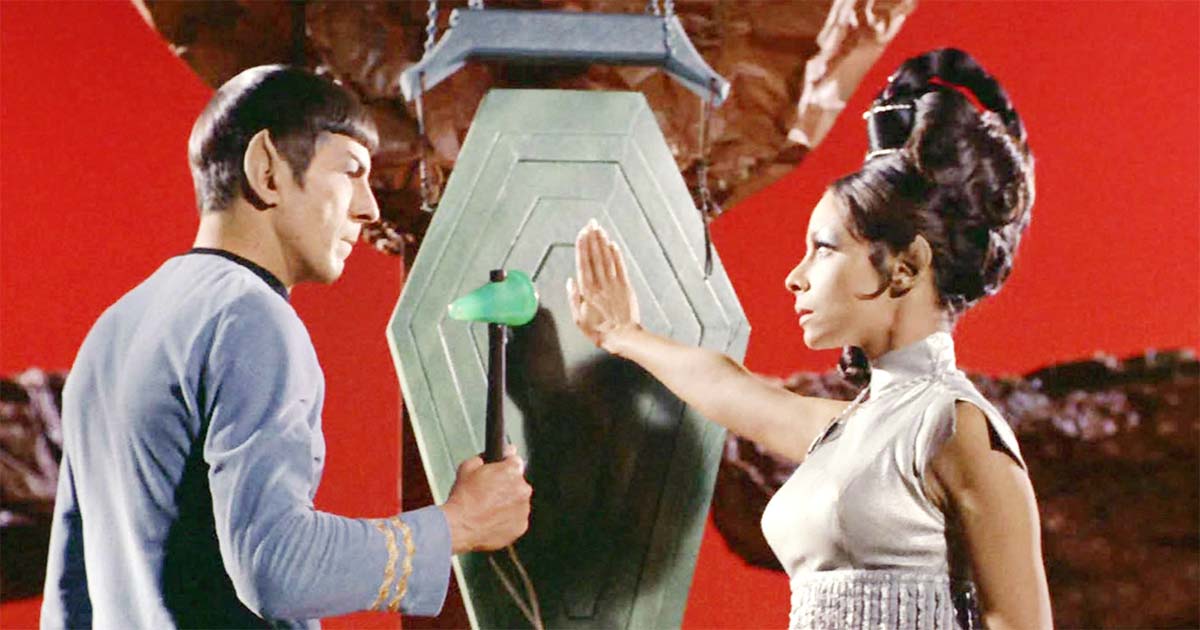
Which Episodes Did Spock Go Mad?
Spock is not supposed to go mad. The son of a Vulcan father and a human mother, he serves as a model of logic and emotional restraint—more monk than man, more computer than creature.
So, when Spock loses control, e.g., when he shouts, weeps, or strikes down his captain, it jars the viewer. It makes an impact. And it raises the question. In which episodes does Spock actually go mad?
Of course, “madness” in Spock’s case does not follow the traditional definition. He is not psychotic or delusional.
Rather, Spock’s version of madness comes from one of two sources: alien influence or the breakdown of Vulcan self-discipline. These episodes serve not only as plot devices but also as rare windows into the emotional world of a character who tries desperately to conceal it.
The Logic of Madness
The drama of Spock’s character rests on the tension between control and chaos. Vulcans suppress emotion to avoid the violent history of their past. Spock, being half-human, carries the additional burden of instinctive feeling. When something breaks that restraint—chemicals, telepathy, biology—we witness what he works so hard to hide. The result is not insanity, but emotional exposure. And in Star Trek, that can look like madness.
“Amok Time” (Season 2, Episode 1)
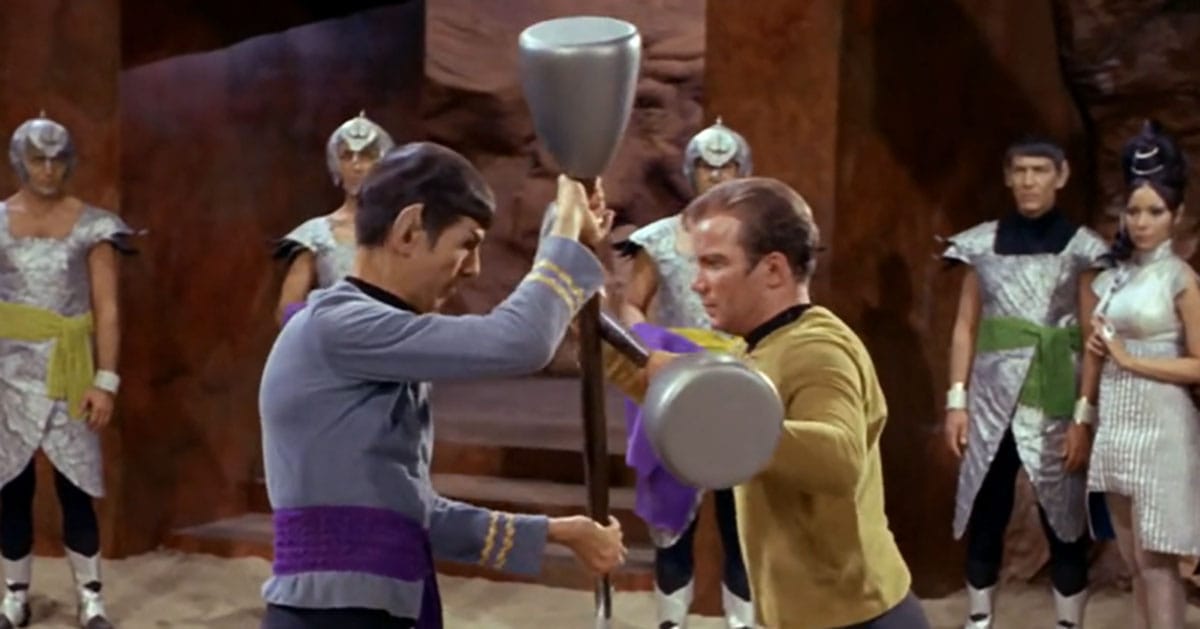
No episode captures the explosive consequences of Spock’s internal struggle quite like “Amok Time.” When the Enterprise receives new orders just as Spock begins experiencing pon farr—the Vulcan mating drive—he spirals into unpredictable behavior. He becomes angry, secretive, and even violent, attacking Kirk for no apparent reason.
Pon farr is not a psychological disorder but a physiological necessity. Still, the symptoms—irrationality, aggression, hallucination—mirror madness. And for Spock, the shame is palpable. This episode also introduces Vulcan culture in depth for the first time, showing that even a logical society must make allowances for ancient instincts.
“This Side of Paradise” (Season 1, Episode 24)
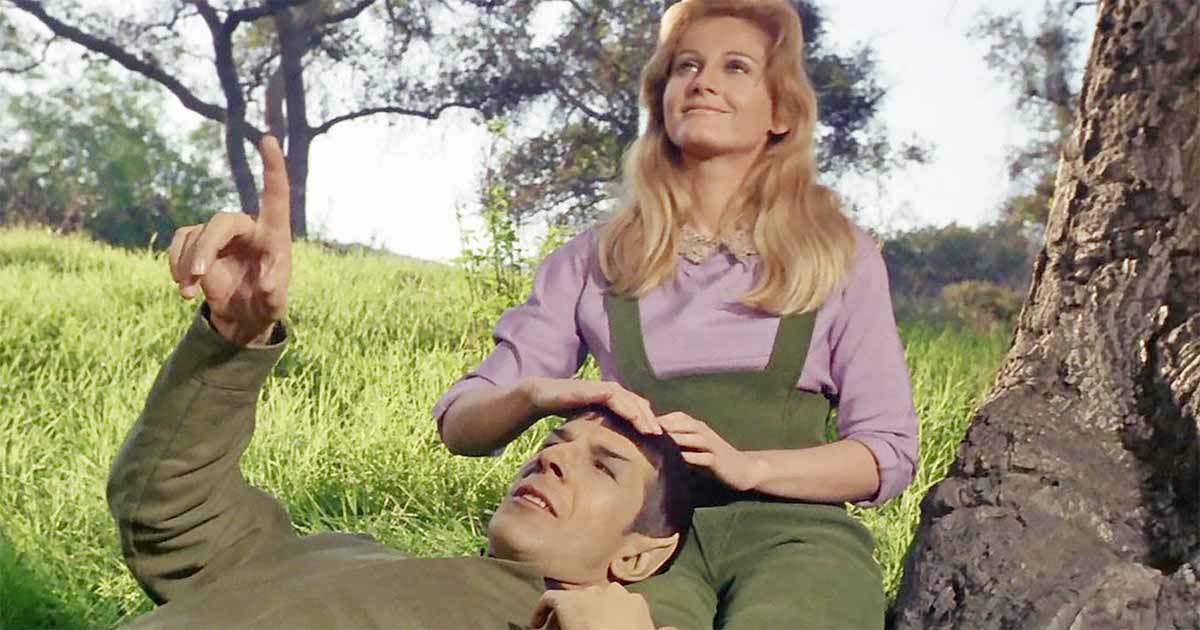
If “Amok Time” shows Spock in pain, “This Side of Paradise” shows him in bliss—too much bliss.
In this episode, alien spores infect the crew, removing anxiety and flooding them with serenity. For Spock, it’s a liberation. He laughs. He falls in love. He climbs trees and grins like a schoolboy.
To call this madness might seem unfair. But for a man who defines himself by restraint, emotional excess—even joy—can be destabilizing. The most striking moment is not his euphoria, but its end. When the spores are purged, Spock remembers everything. “For the first time in my life, I was happy,” he says. The madness, perhaps, lies in knowing what he must now give up.
“The Naked Time” (Season 1, Episode 4)
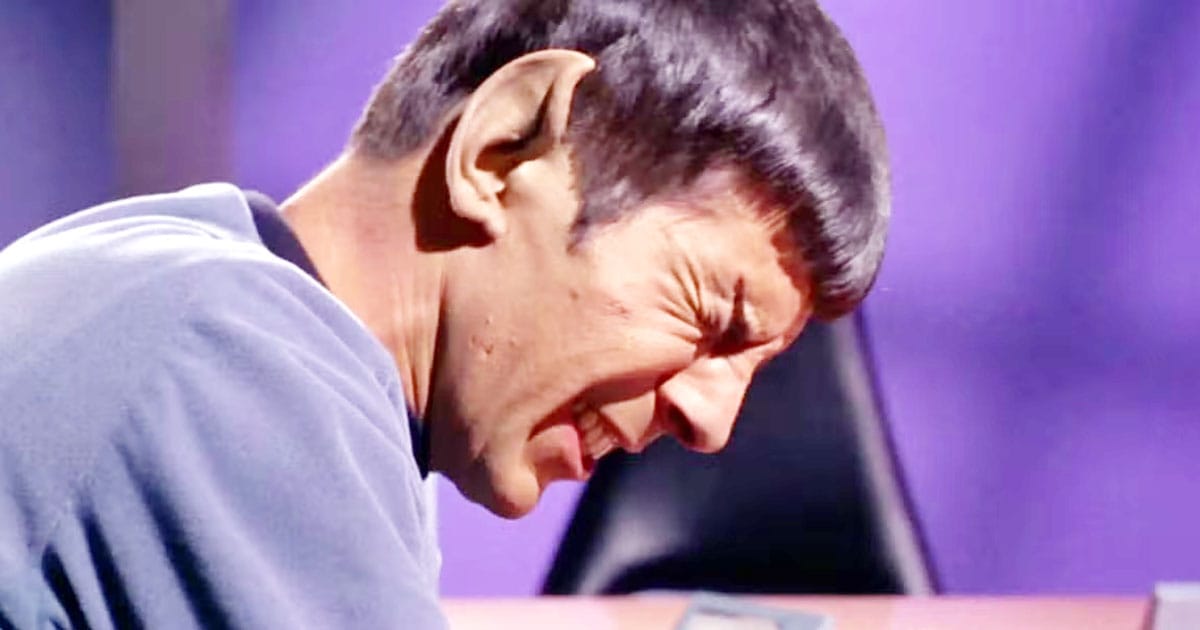
In one of the earliest episodes of the series, Spock contracts a virus that removes inhibition.
The infection causes crew members to behave irrationally—one dons a fencing outfit, another grieves for a dead planet. Spock tries to resist, but ultimately breaks down in tears, confessing regret over never telling his mother he loved her.
The image of Spock crying—publicly, helplessly—is unforgettable. Unlike in “This Side of Paradise,” where emotion is externalized through joy, “The Naked Time” internalizes it as pain. This is not alien manipulation. This is suppressed grief erupting after years of denial.
“All Our Yesterdays” (Season 3, Episode 23)
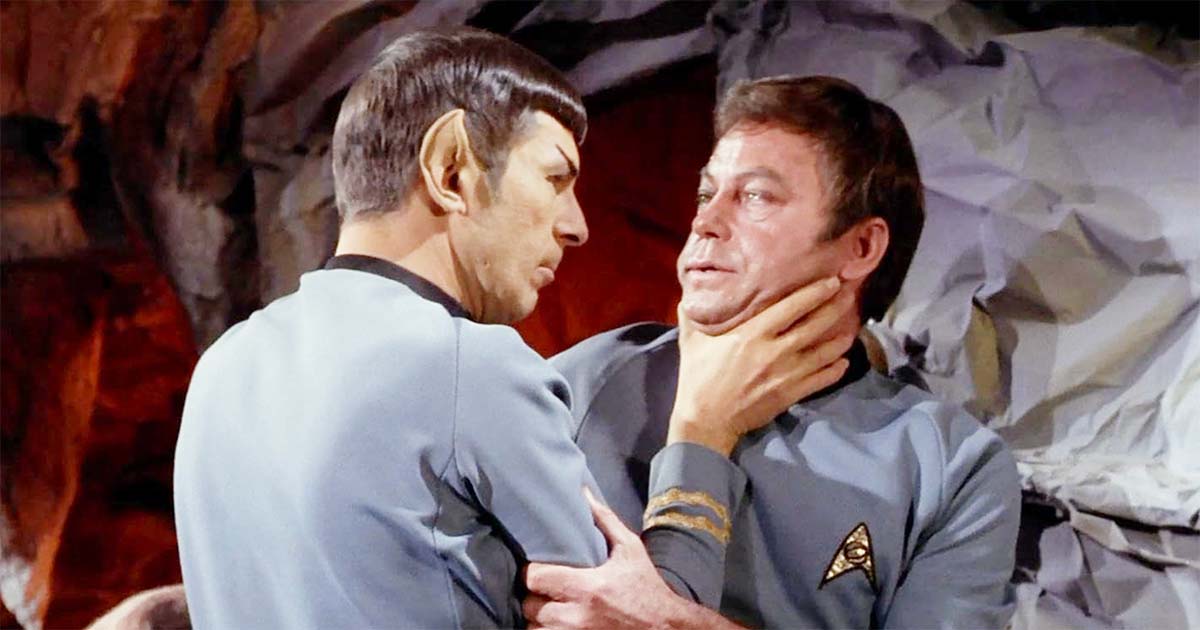
Transported to the distant past of Vulcan, Spock begins to revert to the primitive instincts of his ancestors. He becomes emotional, confrontational, and even romantic.
While the conditions of the planet explain this regression, it underscores a key truth. Vulcan logic is not innate. It is learned. And when those teachings are stripped away, Spock is vulnerable to the same passions as any human.
This episode poses a quiet question. If Vulcan control is so easily disrupted by time or circumstance, what does that say about the strength—or fragility—of civilization itself?
“Plato’s Stepchildren” (Season 3, Episode 10)
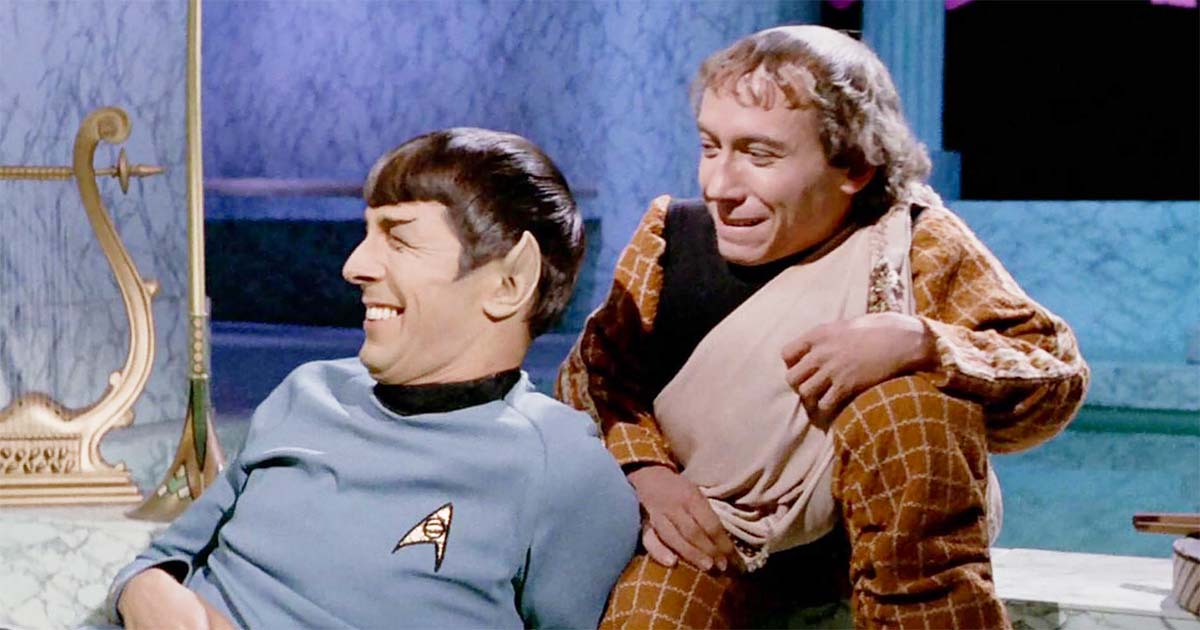
The madness in this episode is not internal. It is imposed.
Powerful telekinetic aliens force the Enterprise crew to perform humiliating acts for their amusement. Spock sings. He weeps. He expresses forced affection for Nurse Chapel.
The episode is uncomfortable by design. Spock is made to perform emotion, and it borders on parody. But it also reveals how much he values control—not for power, but for dignity. The violation is not just physical, but psychological.
The Line Between Discipline and Madness
In every case, Spock’s so-called madness comes from the loss of discipline—whether biological, environmental, or imposed.
He does not go mad in the clinical sense. Rather, he is unmasked. These episodes do not betray his character; they clarify it. Spock’s battle is not to feel nothing, but to act rightly in spite of feeling everything.
Closing Reflection
We remember Spock not because he is unfeeling, but because he feels deeply and rarely shows it. The episodes in which he “goes mad” are not lapses. They are revelations. They remind us that under all that logic, there is still a man. And sometimes, a mad one.

